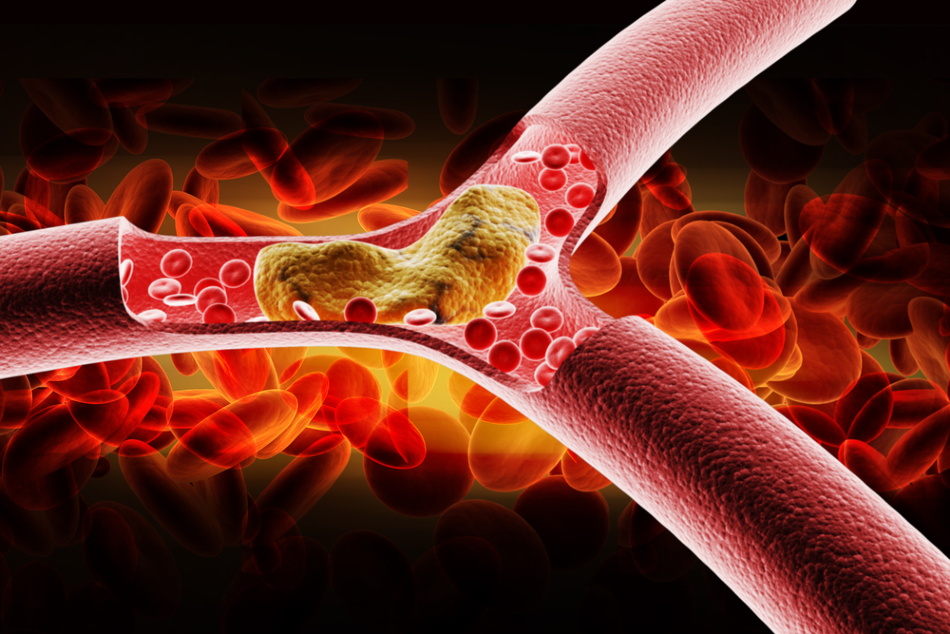
Image Credit: RAJ CREATIONZS/Shutterstock.com
In January 2020, a team of scientists from Michigan State University and Stanford University announced the creation of a nanoparticle that can destroy heart-attack-causing plaques efficiently – from the inside out.
Dubbed the ‘Trojan Horse’ nanoparticle, it has proven itself effective at reducing and stabilizing plaque, as well as clearing debris. Scientists believe the particle will be vital in developing future treatments for one of the leading causes of death in the US: atherosclerosis.
Stimulating the Macrophages Intracellularly
Approximately half of all deaths in the Western world are caused by atherosclerosis, a chronic inflammatory disease where plaque accumulates in the arteries, preventing the transportation of oxygen-rich blood from the heart to the body’s tissues and organs. It is the primary cause of atherosclerotic cardiovascular disease (ASCVD), which leads to heart attacks, peripheral arterial disease, and stroke.
Approximately 25% of deaths in the US are a result of heart disease, amounting to 610,000 people each year, and approximately 735,000 Americans suffer from heart attacks annually. Targeting the root cause, atherosclerosis, is a key focus on research into establishing new methods of treatment and prevention.
Because atherosclerosis also affects the development and risk of suffering from several diseases and health problems, the potential impact of treatment on overall health is huge, potentially extending the lives of a significant portion of the population.
In a paper published last month in Nature Nanotechnology, the Michigan State and Stanford team explains that the Trojan Horse nanoparticle is effective at targeting atherosclerotic plaque because of its high selectivity to monocytes and macrophages, two types of human immune cell.
It works by entering into the macrophages of plaques to deliver a drug that initiates processes that result in the engulfing and consumption of cellular debris. In essence, the nanoparticles stimulate the reinvigoration of the macrophages, which work to reduce and stabilize the plaque while also clearing the dead cells in the plaque core.
Previously, studies focused on exploring systems that target the cell’s surface, although success was limited. This new method of working intracellularly has shown promise in its ability to stimulate the macrophages.
Nanoparticle Trials
Clinical trials are planned to investigate the nanoparticle’s effectiveness in reducing the risk of heart attacks. Trials will also ensure the nanoparticle does not have unwanted side effects.
Presently, the findings are positive. Data shows the nanoparticle is effective in its ability to stimulate the body’s macrophages to selectively attack and clear dying cells, which are the first stage of developing atherosclerosis. Scientists believe the new method is an improvement on the techniques that are currently used.
Several studies are also investigating the use of pro-phagocytic antibody-based therapies. However, research has shown that these therapies have the potential to cause off-target clearance of healthy tissues, resulting in detrimental side effects such as anemia.
Scientists working on the project believe that the nanoparticle will have applications outside of atherosclerosis. However, more research is needed.
A provisional patent has been filed, and marketing is due to begin in 2020. It might not be long until this system is available clinically as a method of atherosclerosis prevention.
References and Further Reading
Arandjelovic, S. and Ravichandran, K. (2015). Phagocytosis of apoptotic cells in homeostasis. Nature Immunology, 16(9), pp.907-917. https://www.nature.com/articles/ni.3253
Flores, A., Hosseini-Nassab, N., Jarr, K., Ye, J., Zhu, X., Wirka, R., Koh, A., Tsantilas, P., Wang, Y., Nanda, V., Kojima, Y., Zeng, Y., Lotfi, M., Sinclair, R., Weissman, I., Ingelsson, E., Smith, B. and Leeper, N. (2020). Pro-efferocytic nanoparticles are specifically taken up by lesional macrophages and prevent atherosclerosis. Nature Nanotechnology, 15(2), pp.154-161. https://www.nature.com/articles/s41565-019-0619-3
Paul, S., Lancaster, G. and Meikle, P. (2019). Plasmalogens: A potential therapeutic target for neurodegenerative and cardiometabolic disease. Progress in Lipid Research, 74, pp.186-195. https://www.ncbi.nlm.nih.gov/pubmed/30974122
Disclaimer: The views expressed here are those of the author expressed in their private capacity and do not necessarily represent the views of AZoM.com Limited T/A AZoNetwork the owner and operator of this website. This disclaimer forms part of the Terms and conditions of use of this website.